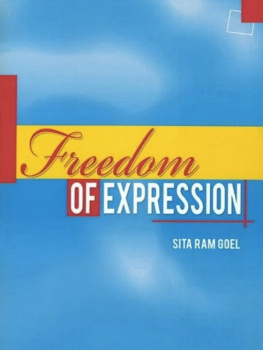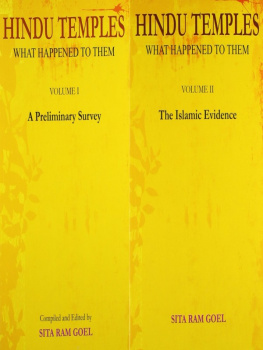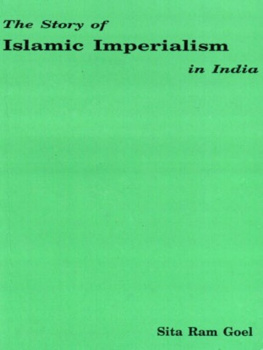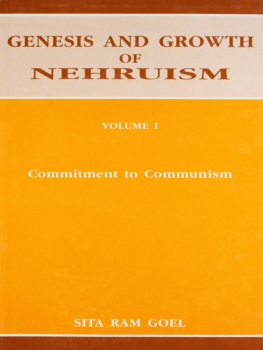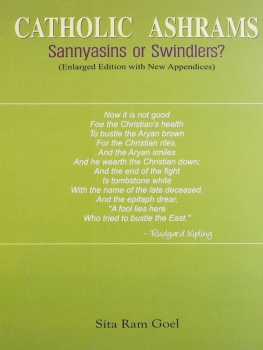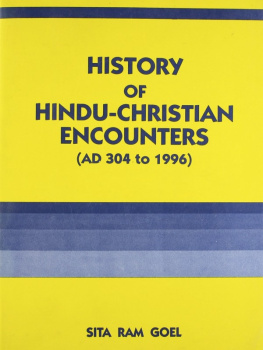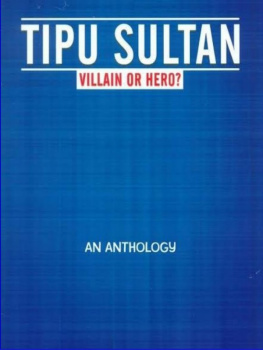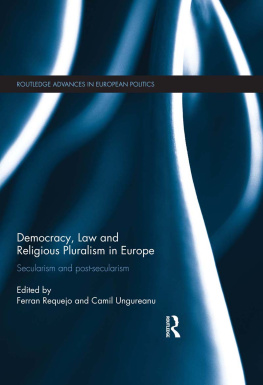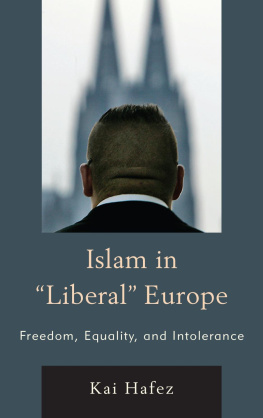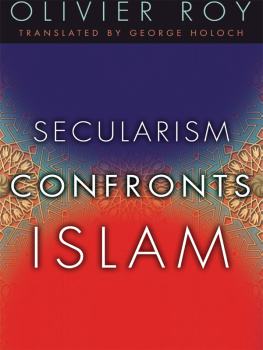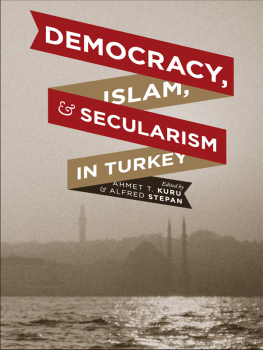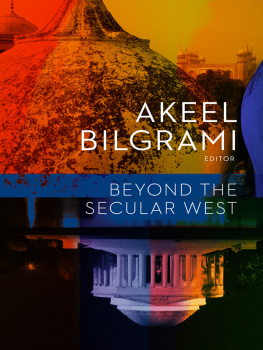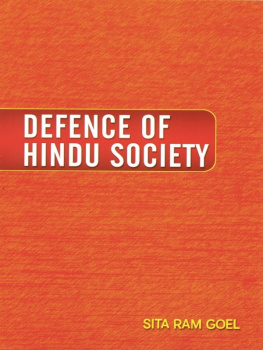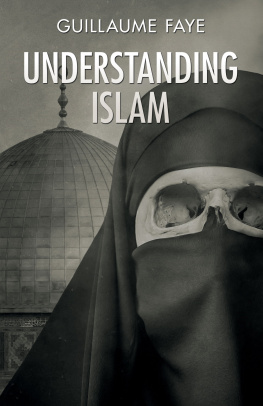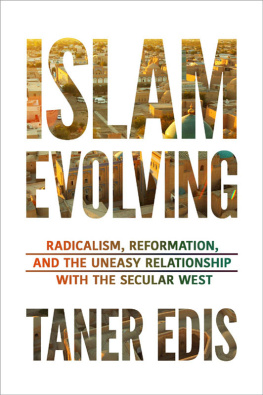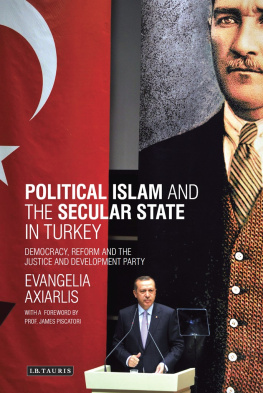Preface
Preface
The concept of Secularism as known to the modern West is dreaded, derided and denounced in the strongest terms by the foundational doctrines of Christianity and Islam. Both of these doctrines prescribe Theocracy under which the State serves as the secular arm of the Church or the Ummah, and society is regimented by the Sacred Canon or the Shariat.
This fact is more than evident if we survey the history of Christianity till the French Revolution, and the practice which prevails in all Islamic states till today. It is a different matter that Christianity has reconciled itself to Secularism because of its steep decline in its traditional homelands - Europe and the Americas. The doctrine remains unchanged and Christianity will restore Theocracy if it were to acquire power again. Islam has yet to evince any sign of similar reconciliation with Secularism either in doctrine or in practice. In fact, the recent trend in most Islamic countries has been to revert to Theocracy in its pristine form, that is, as it existed under the four "rightly guided caliphs".
It is, therefore, intriguing that the most fanatical and fundamentalist adherents of Christianity and Islam in India - Christian missionaries and Muslim mullahs - cry themselves hoarse in defence of Indian Secularism, the same way as the votaries of Communist totalitarianism coming out vociferously in defence of Democracy. The puzzle needs unravelling unless one is satisfied with the mere sound of the word 'secularism', and at the same time nails pluralistic Hinduism as a closed monotheism like Islam and Christianity as India-watchers in the West and their lickspittles in this country have been doing for a long time.
It is significant that the word 'secularism' occurs neither in the writings and speeches of Pandit Nehru nor in the vocabulary of its other present-day votaries if we consult the record from the pre-independence period. Even in the Constitution of India as enacted in January 1950 the word does not find a place either in the Preamble or anywhere else; it was inserted there arbitrarily by Indira Gandhi during the Emergency she imposed on the Country during 1975-76. But ever since Pandit Nehru rose to supreme power in the Indian National Congress and the country at large after the death of Sardar Patel in December 1950, we find this word becoming increasingly frequent in his writings and speeches and fashionable in the parlance of parties that have otherwise nothing in common except their hatred of Hindus and Hinduism. All sorts of Hindu-baiters have come to describe themselves as 'secularists' 'Secular forces' and 'Secular front' while distancing themselves from what they denounce as 'Hindu communalism'. It can be concluded quite safely that although all 'secularists' may not be scoundrels, all scoundrels in India are 'secularists'.
The puzzle stands solved when we learn from the post-independence writings and speeches of Pandit Nehru, the father of Indian Secularism, that he had borrowed from the modem West only the word and not its meaning in Western political parlance. In fact, he himself stated what he was doing in a letter he wrote to C.D. L.K. Advani had hit the nail on the head when in a moment of clarity and courage during the Ayodhya Movement (1989) he had said that. Secularism in India was a euphemism for Hindu-baiting.
That was the intention when Pandit Nehru launched his 'Secularism' around 1951-52. The intention materialized into a grim reality in the next few years. Meanwhile, he permitted his courtiers, particularly the Gandhians, to provide the window-dresssing to this formidable fraud. Secularism in India, they said, cannot mean the irrelevance of religion in mundane affairs as it meant in the modern West. India being a religious - infact, a multi-religious - society, they asserted, religion was very much relevant to the lives of the Indian people. So Secularism had to acquire a new meaning in the Indian context. Instead of meaning irrelevance of religion, they proclaimed, it should mean the relevance of all religions prevailing in this country - Hinduism, Islam, Christianity, Sikhism, Jainism, Buddhism, and Zoroastrianism. In short, they defined Indian Secularism as sarva-dharma-samabhva - equal respect for all religions - as expounded by the Father of the Nation, Mahatma Gandhi.
But Gandhi's sarva-dharma-samabhva did not stop at equal respect for all religions; it went much further and stood for equal validity of all religions. The Mahatma had spared no ink or breath to inculcate the belief that all religions embody the same truths, pursue the same goal, and lead to the same spiritual fulfilment. This second dimension of sarva-dharma-samabhva was brought forward very forcefully when the big-wigs of the Indian establishment - the President, the Vice-President, the Prime Minister, the Chief Ministers - started broadcasting their messages to the nation on the birthdays of Sri Rama, Sri Krishna, Prophet Muhammed, Jesus Christ, Guru Nanak, Mahavir and Buddha. According these worthies, all these founders of 'great religions' blazed the same path to salvation, and stood squarely and in the same measure for human brotherhood, social justice, economic equality, world peace, self-sacrifice, compassion - in fact, for every spiritual virtue and sociopolitical value which happened to be in fashion at the time they brushed up their verbiage. The grandiose rhetoric has remained unabated till today.
on the other. Ascribing human brotherhood, social justice, world peace, self-sacrifice and compassion to Christianity and Islam is tantamount to proclaiming that the wolf is a votary of vegetarianism. But that makes no difference to the worthies who never suspect that what they are mouthing does not amount to equal respect but equal ignorance of all religions! They frown upon those who doubt their wisdom and accuse the latter of being 'chauvinists' out to wreck 'India's age-old communal amity'. Sarva-dharma-sambhva has thus become another religious dogma (blind belief) sponsored by the Indian State.
It would have been a blessing indeed if the Indian State had stopped at proclaiming the dogma and left it to the citizens to believe in it or not. But what has happened is that the Indian State actively patronizes the exercise aimed at making all religions mean the same things, and persecutes those who defy the exercise. A whole army of 'secularist' scribes in the media and the academia has been employed and paid handsomely for whitewashing Islam and Christianity so that whatever is bigoted in the scriptures and blood-soaked histories of these creeds, is carefully exorcised. On the other hand, whatever is liberal and large-hearted, humane and civilized in the pluralistic spirituality of India is remorseless pruned to the prescribed and proper size. In the process, At the same time Hindu Dharma has been reduced to Brahmanical tyranny, caste oppression, satee, cowdung-eating, untouchability, bride-burning etc., and Buddhism, Jainism and Sikhism to revolts against 'all these evils'.
Again, it would have been same solace if Muslims, Christians, neo-Sikhs, neo-Buddhists and neo-Jains had subscribed to sarva-dharma-samabhva and shown respect for Hinduism. But what happened was just the opposite. While Hindus were harangued, even forced, to swear by and practise sarva-dharma-samabhva vis--vis Islam, Christianity, neo-Sikhism, neo-Buddhism, and neo-Jainism, followers of the latter creeds were left free not only to propagate their pet dogmas but also to attack Hinduism and proselytize Hindus. What emerged as a result was a united front of Muslims, Christians, neo-Sikhs, neo-Buddhists and neo-Jains (the so-called minorities) which stood arrayed against Hindus, and insisted vehemently that Hindus accept the 'secularist' version of Hinduism thus forcing Hindus to become apologetic and remain on the defensive always.

